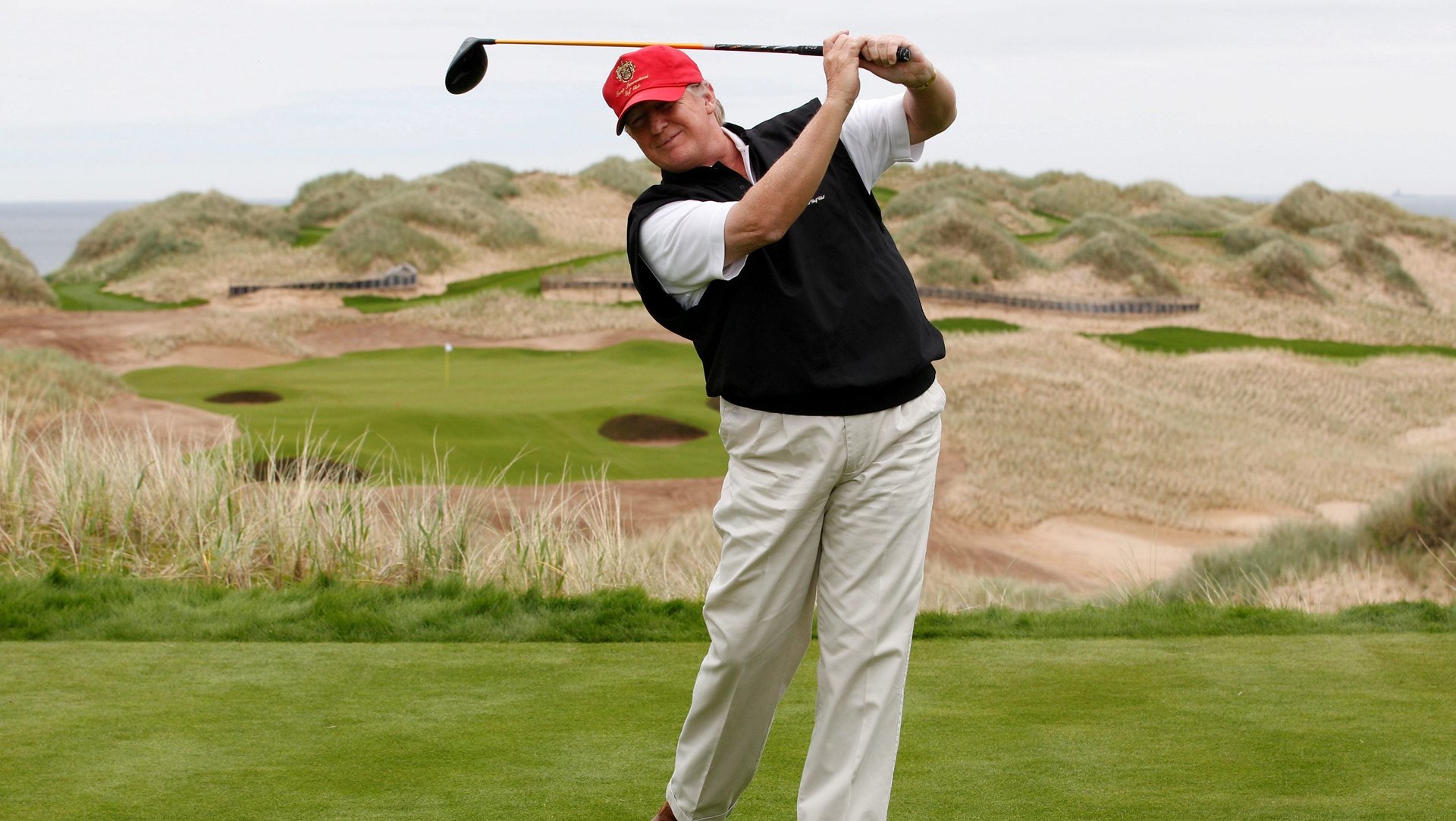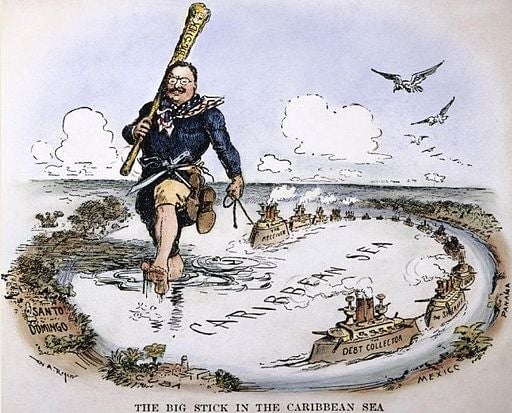Trump’s foreign policy strategy emerges: Speak loudly and carry a tiny stick
US president Theodore Roosevelt borrowed his famous phrase “speak softly and carry a big stick” from a West African proverb, and memorized it as a personal mantra. It formed the backbone of what newspapers gleefully dubbed Roosevelt’s “Big Stick Diplomacy”—a policy of speaking with restraint to other world leaders, while relying on the obvious military and economic might of the US to move them to agree with US positions.


US president Theodore Roosevelt borrowed his famous phrase “speak softly and carry a big stick” from a West African proverb, and memorized it as a personal mantra. It formed the backbone of what newspapers gleefully dubbed Roosevelt’s “Big Stick Diplomacy”—a policy of speaking with restraint to other world leaders, while relying on the obvious military and economic might of the US to move them to agree with US positions.
Roosevelt explained the concept in detail in a 1905 speech at the New York press club (paywall), saying:
If one man says something to another, the stronger the other man is, the less he finds it necessary to answer back. He does not want to talk at all until he has to act, and then he wants to act with decision. The most contemptible of all attitudes to be in is to have talked loudly and then act with indecision. Now, just so with the nations.
Do not speak ill of other nations…Behave courteously, with consideration; do no wrong to any other power and at the same time keep ourselves in such a state of preparedness that it may be evident that we are scrupulous not to wrong others because we believe it right to adopt such an attitude, and not because we are afraid of adopting any other attitude.

“Big Stick” was key to cementing the US’s role as a world power, while also helping to maintain global peace by bringing “belligerent” nations to the negotiating table, explains the University of Virginia’s Miller Center, which aims to apply the lessons of history to contemporary US governance challenges.
US president Donald Trump’s actions so far have been exactly the opposite. He’s insulted, harangued, and threatened foreign leaders. He’s also pledged drastic policy changes—only to backtrack (or be forced to back down) in the days or weeks afterward.
In the latest example, Trump promised a during a Feb. 8 phone call with Chinese president Xi Jinping to commit to the “One China” policy, which does not recognize Taiwan as an independent nation. It was quite a break from his earlier, hard-line stance against Beijing.
Weeks before he took office, Trump took a call from Taiwan president Tsai Ing-wen, upturning decades of protocol and then suggested that the US could use “one China” as a bargaining chip to make deals with the country—a stance that would have completely rewritten the US-China relationship.
Trump’s three-week-old presidency is rife with other examples of tiny-stick diplomacy.
He pledged through his campaign and afterward to move the US’s Israeli embassy to Jerusalem, a move that horrified the Arab world, as both the Israelis and Palestinians claim Jerusalem as their capital. This week, though, he told Israeli newspaper Israel Hayom he was merely “studying” the issue, adding that it was “not an easy decision.” He appointed an ambassador to Israel who supports the construction of Israeli settlements in disputed territories, but the White House warned later that settlements might not be helpful to peace in the region.
Throughout his campaign, Trump pledged that Mexico would pay for a wall on its border with the US, despite Mexican politicians’ vehement insistence to the contrary. Mexican president Enrique Peña Nieto canceled a meeting with Trump over the issue. Meanwhile, Trump still plans to build the wall, but the cost, estimated at more than $21 billion, is now expected to come from the next Congressional budget, funded by US taxpayers.
By following a strategy that’s completely the opposite of Roosevelt’s, one might expect that Trump will get completely opposite results—diminished respect for the US around the globe, and an uprising of other belligerent nations that threaten world peace.